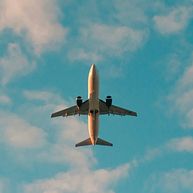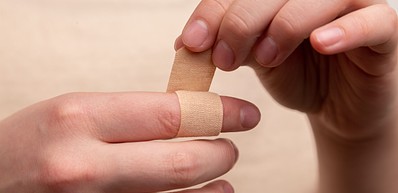
-
![Al-Amoudi Museum, Mecca]() Provided by: Blue Art/unsplash
Provided by: Blue Art/unsplash

Our travel guides are free to read and explore online. If you want to get your own copy, the full travel guide for this destination is available to you offline* to bring along anywhere or print for your trip.
*this will be downloaded as a PDF.Price
€4,95
Best Time to Visit
The guide was updated:The weather in Mecca is hot and dry year round, but there is some variation between summer and winter. Most tourists and pilgrims visit Mecca during the somewhat cooler winter months, avoiding the city during the hottest period (from June to August). Mecca sees almost no precipitation, and winds are usually very calm. This, coupled with the extreme temperatures, can make the city scorching hot, so be sure to stay hydrated and avoid too much sun exposure.
As the holiest city in Islam, Mecca is always crowded with pilgrims and, unfortunately, tragic incidents like stampedes are not uncommon. Thus, visitors are advised to be careful and always pay attention to their surroundings.
Useful Information
Digital Travel Guide Download
Our travel guides are free to read and explore online. If you want to get your own copy, the full travel guide for this destination is available to you offline* to bring along anywhere or print for your trip.
*this will be downloaded as a PDF.Price
€4,95

Mecca is the holiest city in Islam, and Saudi law strictly forbids non-Muslims from entering it. Documents will be checked upon entry at dedicated checkpoints, and non-Muslims will be redirected to a motorway that bypasses the city. Pilgrims must show proof of being Muslim (a certificate is needed for those converted to Islam) and women must be accompanied by a Mahram (male guardian). The Saudi Arabian government issues special Hajj or Umrah visas to simplify the process, but the sheer amount of paperwork makes many pilgrims rely on specialised travel agencies to handle that.
Read more

Cultural Norms
When strolling and exploring the city, please ensure you wear appropriate attire. Women must be covered from neck to toes, and in certain areas, scarves are used to cover the face and head. Shorts and tank tops should not be worn outside of private accommodation by women. For men, loose clothing is recommended, and shorts are prohibited.
When visiting, please make sure to respect and abide by the laws and culture of the country.
Read more

Passport / Visa
Saudi Arabia introduced a new eVisa system in October 2019, dramatically simplifying visa applications for citizens of multiple world countries, including the USA, Canada, China, Japan, Australia, and much of Europe. The new multiple-entry visa will be processed within record time (as quickly as 30 minutes), issued for one year, and will allow visitors to stay in the country for up to 90 days during its validity period. This marks a watershed moment in the country’s history, as Saudi Arabia has historically been off limits to non-Muslim tourists, with visas notoriously difficult to secure.
Citizens of countries not covered by the eVisa program will still need to turn to their nearest consulate to obtain a visa.
Note that it is illegal to have two passports in your name in Saudi Arabia. Immigration authorities will confiscate additional passports.
Special visas for Hajj or Umrah are issued by the government for those who want to perform a pilgrimage. To apply for a Hajj or Umrah visa, visit the nearest Saudi consulate or embassy or contact an approved Hajj travel agent, who will get the necessary papers for you.
Read more

Best Time to Visit
The weather in Mecca is hot and dry year round, but there is some variation between summer and winter. Most tourists and pilgrims visit Mecca during the somewhat cooler winter months, avoiding the city during the hottest period (from June to August). Mecca sees almost no precipitation, and winds are usually very calm. This, coupled with the extreme temperatures, can make the city scorching hot, so be sure to stay hydrated and avoid too much sun exposure.
As the holiest city in Islam, Mecca is always crowded with pilgrims and, unfortunately, tragic incidents like stampedes are not uncommon. Thus, visitors are advised to be careful and always pay attention to their surroundings.
Read more

King Abdulaziz International Airport (JED)
King Abdulaziz International Airport (JED) is located in Jeddah and is the largest airport in Saudi Arabia. Often called "the gateway to Mecca", it has a dedicated terminal for Hajj, which is active during Hajj season, during the last month of the Islamic calendar, to help accommodate the vast number of pilgrims. Buses and taxis are available at the airport and offer an easy mode of transport to Mecca.
Read more

Public Transport
The best way to get to Mecca is by car or bus from Jeddah. Saptco is the company that runs intercity transportation in Saudi Arabia and they provide regular bus lines from Jeddah to Mecca.
There is also a metro line in Mecca, with plans to be expanded to four, but it only operates during Hajj season to provide safe transportation for pilgrims and reduce traffic congestion.
Read more

Taxi
Taxis are readily available at the Jeddah Airport and in Mecca, but for moving around in the city, especially during Hajj season, it is more advisable to just walk, as traffic is congested. A taxi ride from Jeddah to Mecca takes one hour, depending on the traffic.
Read more

Pharmacy
Common medications are readily available over the counter in most pharmacies, which are often located in malls, hospitals, and stand-alone shops. Prescription is needed for more potent medications. Nahdi pharmacy is a well-known chain.
Read more

Post Office
Saudi Post offices are usually open from Sunday to Thursday 8am–4pm, aligning with the standard workweek in Saudi Arabia. Some branches may also be open on Saturdays. Services typically include mailing and parcel delivery, financial transactions, and the sale of postal supplies.
Read more

Telephone
Country code: +966
Area code: (0)12
Read more

Electricity
You'll find a variety of electrical sockets in Saudi Arabia, The most common are Type A (two flat parallel pins, commonly used in North and Central America) and Type G (three rectangular prongs in a triangular pattern, used in the UK). Type C, Known as the Europlug, can also be found. Saudi Arabia is one of the few countries in the world that use the dual-distribution voltage 127/220 volts at homes. Standard voltage 127 volts is used for household appliances and the 220 volts for high-load electrical appliances.
Read more


